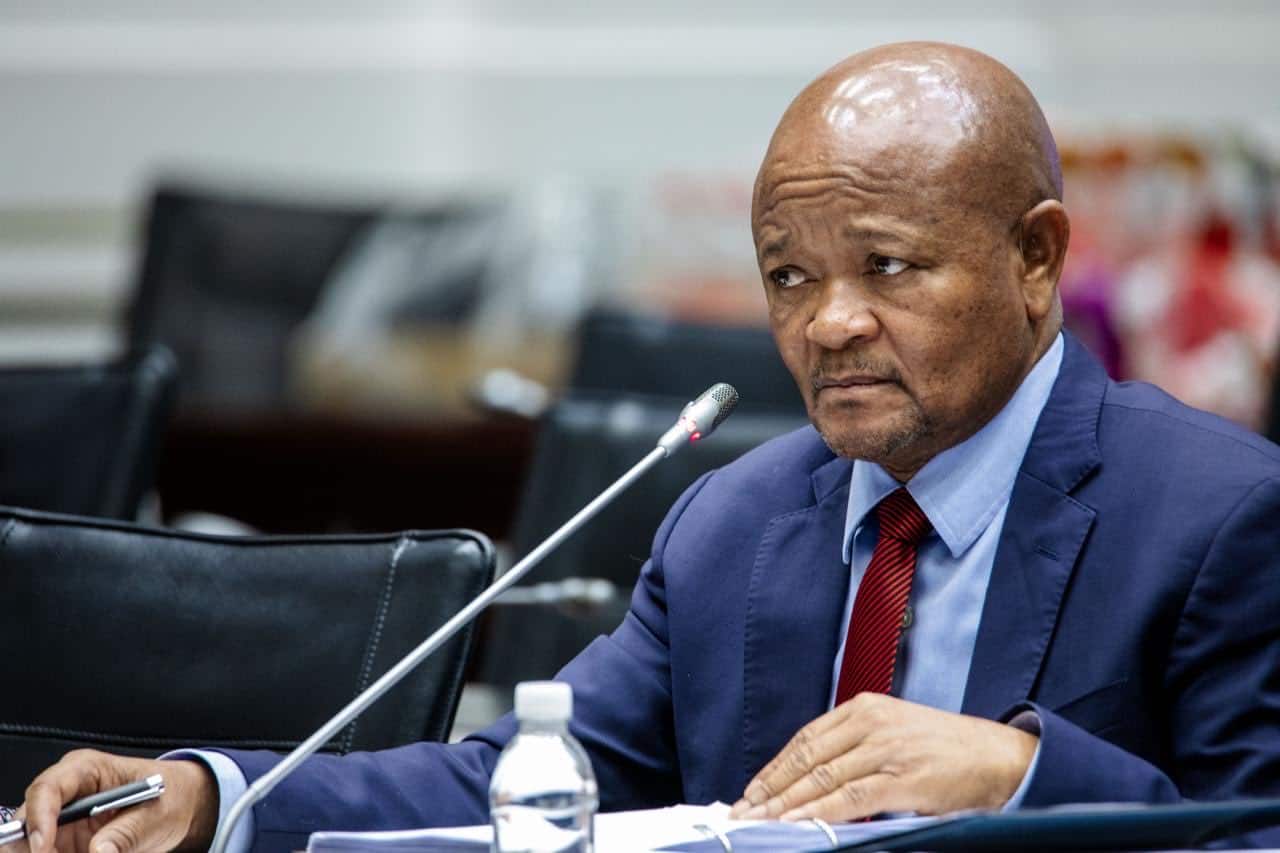Mchunu says the PKTT was disbanded following a work study undertaken and signed by Khehla Sithole in 2019.

Police Minister Senzo Mchunu has accused national police commissioner General Fannie Masemola of withholding information regarding the processes followed when disbanding the political killings task team (PKTT).
Mchunu took the hot seat before the Ad Hoc Committee on KwaZulu-Natal (KZN) police commissioner Lieutenant General Nhlanhla Mkhwanazi to defend himself against the general’s allegations.
Both Mkhwanazi and Masemola insisted on their testimonies that no consultations took place that should have resulted in Mchunu’s directive on 31 December 2024 to disband the PKTT.
However, Mchunu said it was not the case.
“In one of the discussions we had around November 2024, I recall the national police commissioner clarifying to all present that the PKTT was not a formal unit but a task team,” said Mchunu.
“The important part about what he said was that the intention of the NPKTT was to evolve to a dedicated murder and robbery unit. I will later demonstrate that the national police commissioner withheld information from this committee.
ALSO READ: Senzo Mchunu fights back after police tried to search his house
“He was aware of a work study that was undertaken and signed by the former national police commissioner general Khehla Sithole in June 2019. The work study disbanded the NPKTT and resurrected all the specialised units, including the murder and robbery unit. This occurred before I came into the position.
“Mine was to give effect to the work study outcomes. I made it my duty after I got appointed that, beyond interacting with individual police officers, I would go out of my way to understand some of the things, documents and other people, including former police minister Bheki Cele, who handed over a file to me detailing everything.”
PKTT discussions
Mchunu said he became fully knowledgeable about the PKTT towards the end of last year.
“As the discussions on the PKTT started, they were quite superficial, but then, we had another round, much more intense, and then we started to discuss things much more intensely,” said Mchunu.
“Somewhere in November, we discussed the PKTT like we would discuss other teams and units, much more than we had done in the beginning. We were able to have our own opinions as the ministry, saying, ‘Look, this is how we think or believe we should move forward with these particular teams, including the PKTT.'”
Mchunu said there were three meetings in November 2024 that discussed the PKTT before his directive to disband it in December. However, Masemola’s office has only sent minutes of the meeting held on 1 November 2024.
ALSO READ: Mchunu’s chief of staff accuses Masemola of intimidation tactics
The police minister mentioned another meeting held on 22 November 2022, where the PKTT was discussed.
“I made statements in that [1 November] meeting which are in the minutes of the first meeting. I made statements in the second meeting, too, and so did the national police commissioner.”
Task team vs unit
Mchunu said from the moment he was appointed to the police ministry, he had been aware of the distinction between a unit and a task team.
Essentially, units become part of the organogram of the South African Police Service (Saps), while task teams such as the PKTT were never part of the organogram.
“A unit is a long-term arrangement, while task teams have been established from time to time at various levels, even at a district level,” said Mchunu.
“A district commissioner would observe a particular problem in their area of jurisdiction, and they would say we need a particular task team to deal with that particular problem.
“Two or three people would be allocated, along with the necessary resources to handle the task. The provincial level would follow the same process, allocating a specific timeframe and resources.
ALSO READ: ‘I will not resign,’ says defiant Sibiya as police raid his house
“Once the mission is accomplished, they will withdraw their members. When establishing a task team, you don’t appoint members from outside; instead, you select people within that particular area based on their expertise. As soon as the mission is accomplished, you return them to their original role. You don’t open a gap on a permanent basis because you will cause confusion.”
Mchunu said everyone involved was aware that the PKTT was a task team that was not established on a permanent basis.
“This particular task team was established as such, and this task team would be evaluated from time to time and assessed whether it would still be needed as time went on.”
Why disband the PKTT
He further explained that he issued the directive to disband the PKTT because there were already other units approved to handle murder and violence cases. The further existence of the PKTT would mean no work for these units.
“When I wrote the directive, it was because now you have a new structure that caters for the further need of the PKTT, but you are going to find that those people who are in the murder and robbery unit approved in 2019 and again in 2024, are going to sit and not do their work because the PKTT is there,” said Mchunu.
“That’s what you’re finding in Gauteng. They have these units, such as serious and violent crimes and organised crime. If you establish a PKTT in Gauteng, it means you’re putting them over and above organised crime units and serious and violent crime units.
“What you’ll do is to pull people into the PKTT, and those who remain in the other units will have nothing to do. You’re going to be piling people within an undefined situation, and you’re not going to be effective on the ground because you’re piling people for the same task.”






